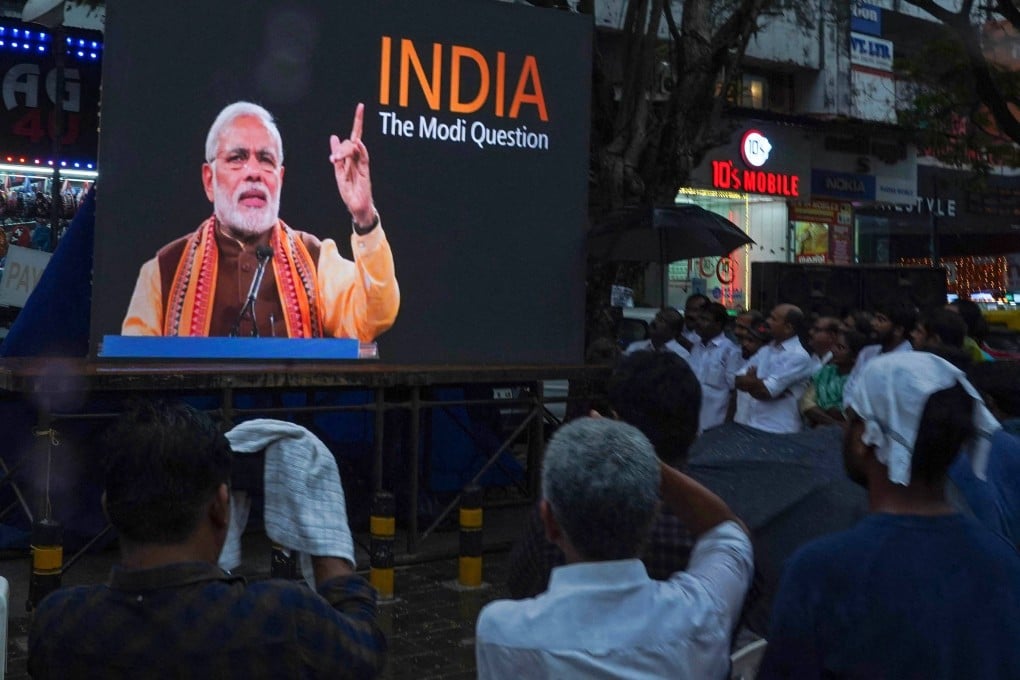Advertisement
India accused of shaping online media to become ‘compliant’ as it bans BBC’s Modi documentary
- Activists say the ban on the film, about Modi’s alleged role in the deadly 2002 Gujarat riots, is part of a worrying trend of increased censorship of online content in India
- But New Delhi’s move may have backfired, with the hype prompting curious people to find copies of the documentary online
Reading Time:4 minutes
Why you can trust SCMP
23

Software engineer Rahul had not heard of the BBC documentary on Prime Minister Narendra Modi, until it was banned and Indian news channels and social media erupted in furious debate over censorship, history and freedom of expression.
But the online hype piqued his interest, and within an hour, the Bangalore city resident was able to find part one of the documentary and quickly downloaded it onto his computer.
“I invited some friends and family members to my [house], and we watched it,” Rahul said, using an alias. “The more the government tries to stop people from watching it, the more curious we become.”
Advertisement
The two-part film by the British broadcaster explores the rise of Modi and his alleged role in deadly riots in the western state of Gujarat in 2002.
How many people in India would have actually paid attention to the film if not for the nature of the government’s response and the controversy that followed
Although the BBC did not broadcast the documentary in India, the federal government invoked emergency powers to swiftly block clips from being shared on social media platforms on January 21. Twitter and YouTube were quick to comply with the government’s request.
Advertisement
Advertisement
Select Voice
Select Speed
1.00x